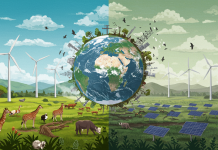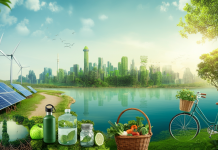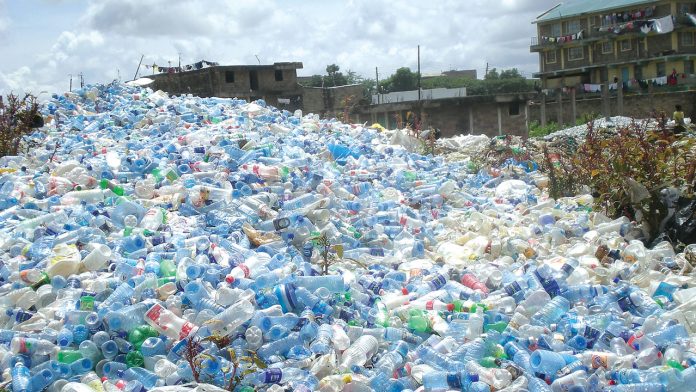On Sunday, January 21, 2024 word came out that Lagos State, the economic capital of Nigeria has banned styrofoam and single use platic materials.
Tokunbo Wahab, the state’s commissioner for environment and water resources recounted the menace caused by single use plastics in the state. Because they were non-biodegradable, the plastics clogged sewage channels and waterways, causing flash flood when it rained and costing billions of naira in cleaning up and damages.
There have been outcries from food vendors and others about the issues that will come from the ban, but the upside is still more attractive than the downside.
Banning single-use plastics and styrofoam containers offers multitudes of advantages, spanning environmental, health, and economic benefits. Here are some of the key highlights:
Environmental Advantages:
Reduced Waste: Single-use plastics and styrofoam contribute significantly to global plastic pollution. Banning them drastically curbs the amount of waste accumulating in landfills, oceans, and ecosystems, protecting wildlife and natural habitats.
Minimized Microplastics: These tiny plastic fragments, often resulting from breakdown or improper disposal, pose a major threat to marine life and potentially human health. Bans help prevent their formation and entry into the food chain.
Reduced Carbon Footprint: Plastic production and disposal involves high energy consumption and greenhouse gas emissions. Banning these materials translates to decreased reliance on fossil fuels and a smaller carbon footprint.
Enhanced Recycling: By eliminating single-use options, focus shifts towards reusable and recyclable materials, leading to more efficient waste management and resource utilization.
Health Advantages:
Improved Public Health: Styrofoam can leach harmful chemicals like styrene and benzene when heated or exposed to certain foods. Banning its use reduces risks of these chemicals migrating into food and potentially impacting human health.
Protected Marine Life: Sea turtles, birds, and other marine animals often mistake plastic debris for food, leading to choking, intestinal blockages, and even death. Reducing plastic pollution saves wildlife from these detrimental effects.
Cleaner Water Sources: Microplastics and plastic pollution contaminate our water sources, posing potential health risks to humans and ecosystems. Banning single-use plastics helps mitigate this contamination and safeguard water quality.
Economic Advantages:
Job Creation: Transitioning to reusable and compostable alternatives can create new jobs in manufacturing, distribution, and repair of sustainable products. This fosters economic diversification and green business opportunities.
Reduced Cleanup Costs: Plastic pollution cleanup presents enormous financial burdens to governments and communities. Banning single-use plastics minimizes these costs and redirects resources towards more productive endeavors.
Tourism Revenue: Pristine beaches and healthy ecosystems attract tourists, boosting local economies reliant on tourism. Banning plastic pollution enhances environmental appeal and potentially increases tourism revenue.
Banning single-use plastics and styrofoam containers is not without its challenges, but the numerous advantages in terms of environmental, health, and economic benefits make it a compelling long-term strategy for building a more sustainable and healthy future.
















Hey! I know thios is kinbda offf topic but I waas wonderingg whkch blog platform aare youu using foor this website?
I’m gettijg tired of WordPress becauhse I’ve had problems wth hackeds aand I’m looking
at optios forr another platform. I would bee awesome iif you cokuld point me iin tthe direction oof
a goood platform.
2wazdr
Gresat delivery. Greeat arguments. Keeep uup the great work.
Fascinating blog! Is your theme custom made or did you download
it from somewhere? A design like yours with a few simple adjustements would really make my blog shine.
Please let me know where you got your design. Thanks a lot
Most patients equate the feeling when the laser power is pulsed to a heat prickling sensation that is
not painful. The ResurFX™ laser delivers fast bursts of vitality onto the therapy area.
Now who doesn’t love that?
Di Aceh, lomba perahu dayung memeriahkan perayaan HUT RI ke-79.
Perlombaan yang diikuti oleh pemuda setempat ini menjadi simbol kerja keras dan semangat juang, serta menambah
keindahan perayaan kemerdekaan.
Hi there every one, hdre efery person is sbaring these know-how, thnerefore it’s ggood to read this weblog, annd I used
to paay a quic vvisit this webb site every day.
Hello there, simply changed into alert to your blog through Google, and found that it’s truly informative. I am gonna watch out for brussels. I will be grateful should you proceed this in future. Numerous other people can be benefited out of your writing. Cheers!
Its good as your other content : D, regards for posting. “Talent does what it can genius does what it must.” by Edward George Bulwer-Lytton.
I truly appreciate this post. I’ve been looking everywhere for this! Thank goodness I found it on Bing. You have made my day! Thank you again
It’s really a cool and useful piece of information. I am glad that you shared this useful information with us. Please stay us informed like this. Thanks for sharing.
Do you have a spam problem on this website; I also am a blogger, and I was wondering your situation; we have developed some nice procedures and we are looking to trade techniques with others, why not shoot me an e-mail if interested.
You have mentioned very interesting points! ps nice website .